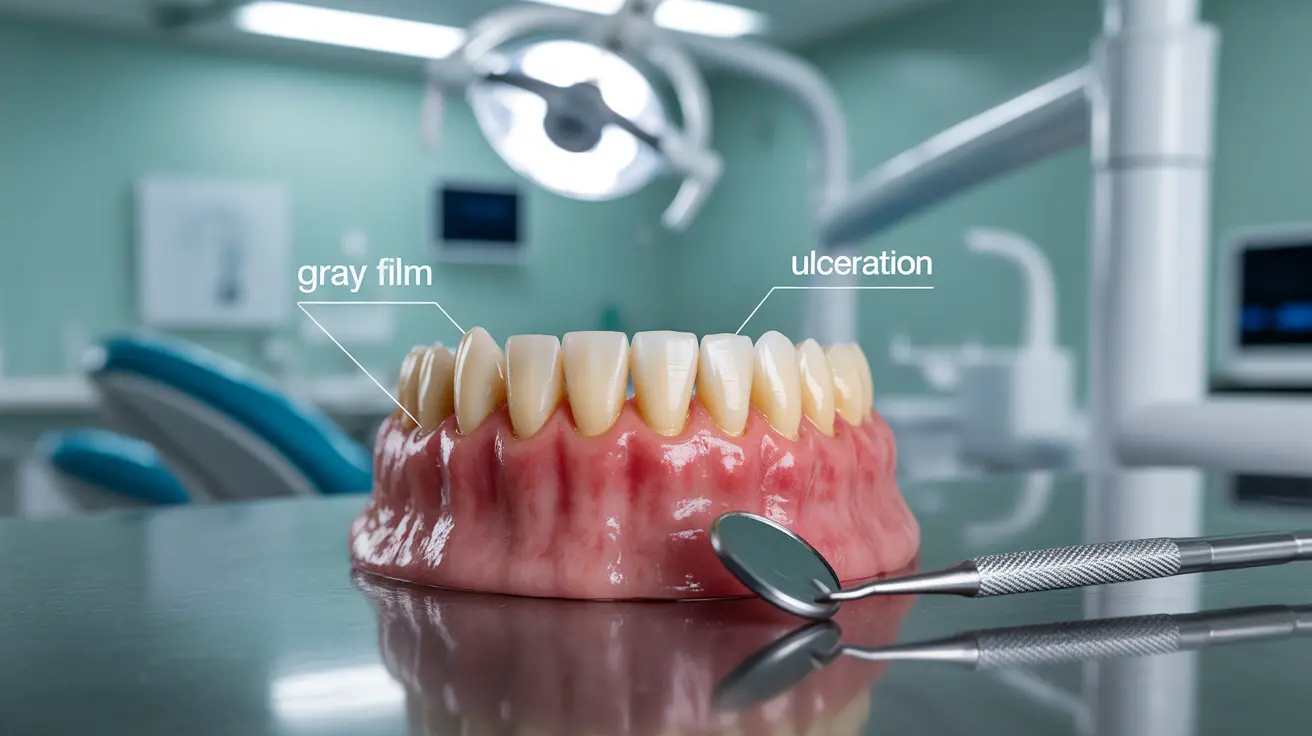Trench mouth, also known as acute necrotizing ulcerative gingivitis (ANUG), is a serious gum infection that requires prompt medical attention. This painful condition can cause significant damage to gum tissue and should be addressed immediately to prevent complications. While relatively rare today, understanding its signs and proper treatment is crucial for maintaining oral health.
What is Trench Mouth?
Trench mouth is characterized by severe gum inflammation, ulceration, and tissue death. The condition earned its name during World War I when many soldiers in the trenches developed this painful infection due to poor oral hygiene conditions and high stress. Today, while less common, it still affects people with compromised immune systems or those experiencing significant stress and poor oral care habits.
Key Symptoms to Watch For
The symptoms of trench mouth typically develop rapidly and can be quite severe:
- Painful, bleeding gums
- Gray film on gums
- Crater-like ulcers between teeth
- Foul taste in mouth
- Severe bad breath
- Fever and fatigue
- Swollen lymph nodes
These symptoms often appear suddenly and can worsen quickly without proper treatment. The pain can be intense enough to interfere with eating and speaking.
Risk Factors and Causes
Several factors can increase your risk of developing trench mouth:
- Poor oral hygiene
- Smoking or tobacco use
- Nutritional deficiencies
- Weakened immune system
- High levels of stress
- Lack of sleep
- Poor diet
The condition occurs when normal mouth bacteria grow out of control, leading to infection and tissue damage. This bacterial overgrowth is typically triggered by a combination of these risk factors.
Treatment Approaches
Treatment for trench mouth typically involves multiple steps:
Professional Dental Care
- Professional cleaning
- Scaling and root planing
- Antibacterial mouthwash prescription
- Possible antibiotic treatment
Home Care During Recovery
- Salt water rinses
- Over-the-counter pain relievers
- Proper brushing and flossing
- Smoking cessation
- Stress management
Recovery usually begins within a few days of treatment, though complete healing may take several weeks. Following your dentist's instructions carefully is essential for successful treatment.
Prevention Strategies
Preventing trench mouth involves maintaining good oral hygiene and overall health:
- Regular dental checkups
- Twice-daily brushing
- Daily flossing
- Balanced nutrition
- Stress management
- Adequate sleep
- Avoiding tobacco products
Frequently Asked Questions
What are the main symptoms of trench mouth that I should watch for? The primary symptoms include severely painful and bleeding gums, gray film on gum tissue, crater-like ulcers between teeth, foul taste in mouth, intense bad breath, fever, and swollen lymph nodes.
What causes trench mouth and who is most at risk of getting it? Trench mouth is caused by an overgrowth of bacteria in the mouth. Those at highest risk include people with poor oral hygiene, smokers, individuals with weakened immune systems, and those experiencing high levels of stress or poor nutrition.
How is trench mouth treated and how long does recovery usually take? Treatment includes professional dental cleaning, antibacterial mouthwash, possible antibiotics, and improved oral hygiene practices. Recovery typically begins within days of treatment, but complete healing may take several weeks.
Can trench mouth be prevented, and what oral hygiene habits help avoid it? Yes, trench mouth can be prevented through regular dental checkups, proper oral hygiene (brushing twice daily and flossing), maintaining good nutrition, managing stress, and avoiding tobacco products.
What complications can arise from untreated trench mouth? If left untreated, trench mouth can lead to severe gum damage, tooth loss, spread of infection to other parts of the mouth and face, and potential systemic complications. Prompt treatment is essential to prevent these serious outcomes.




